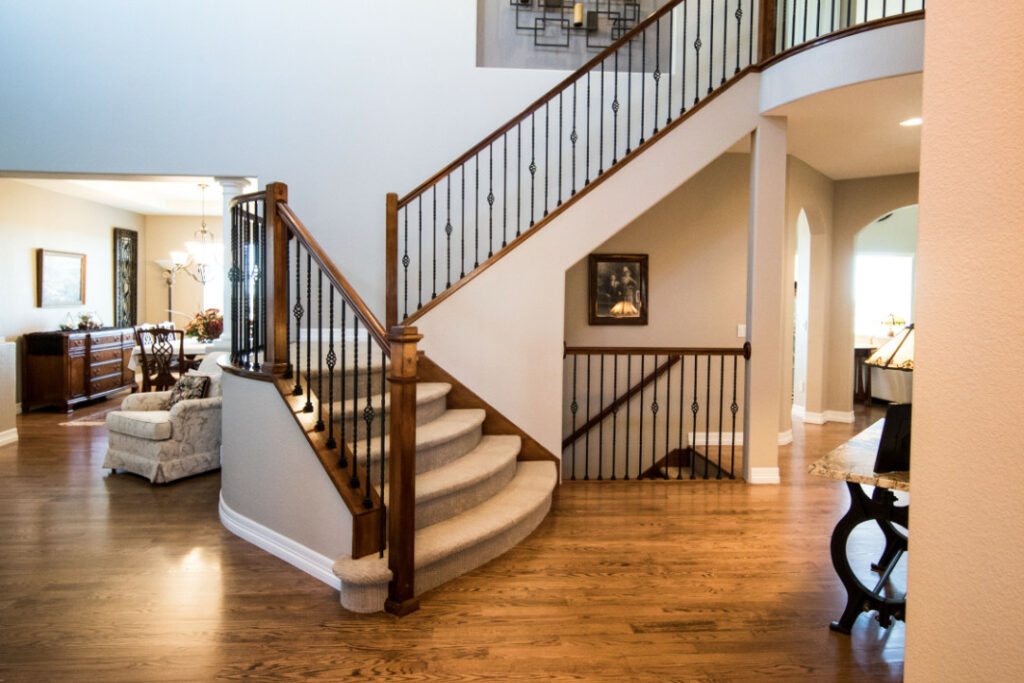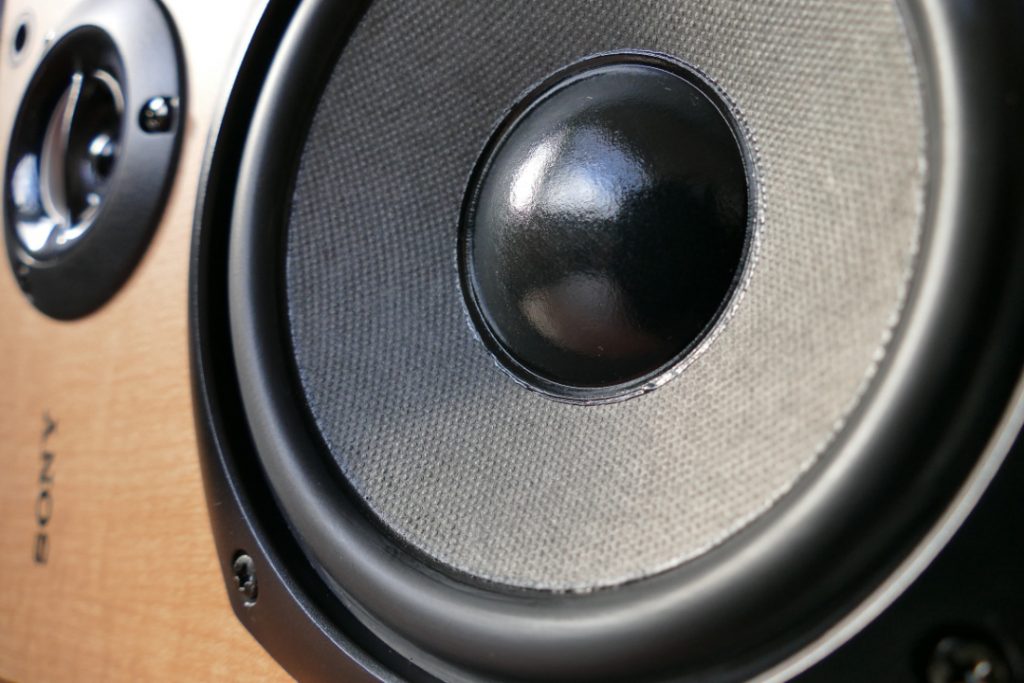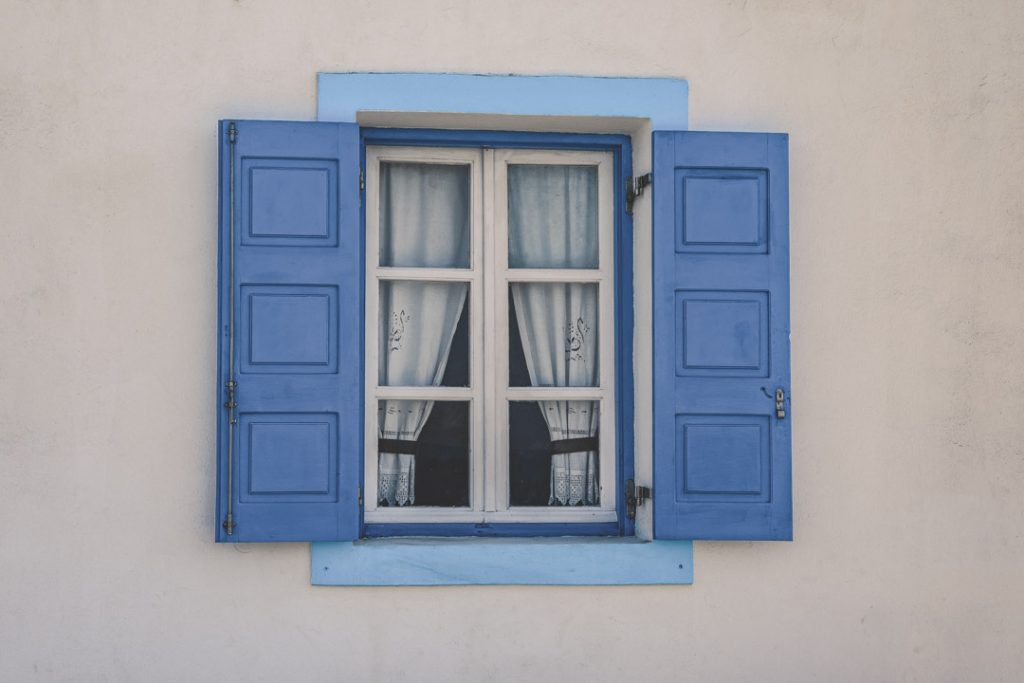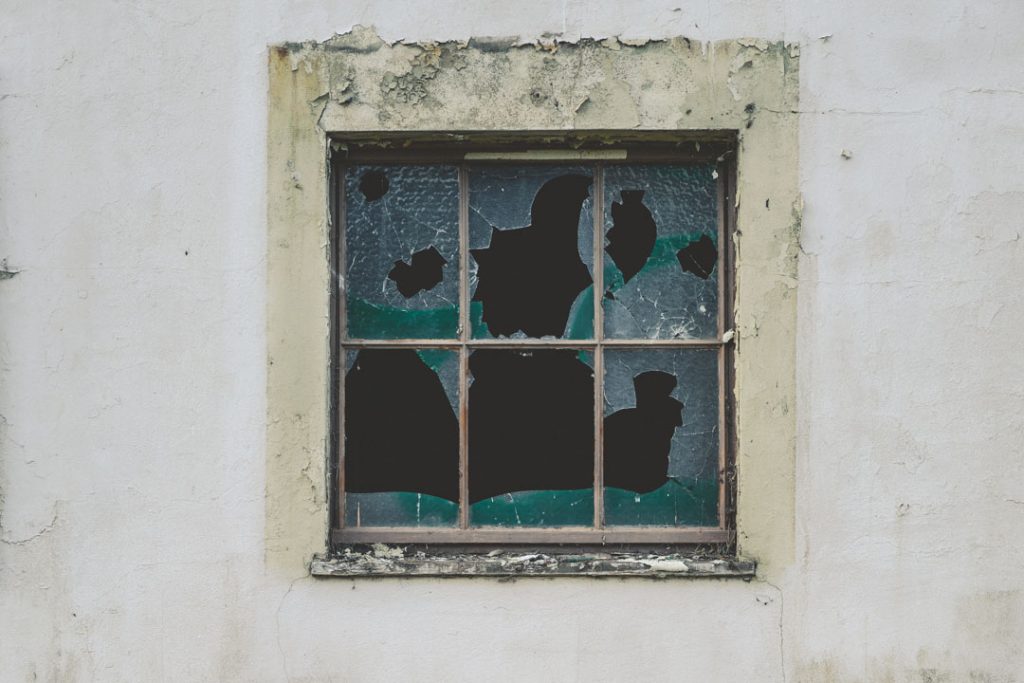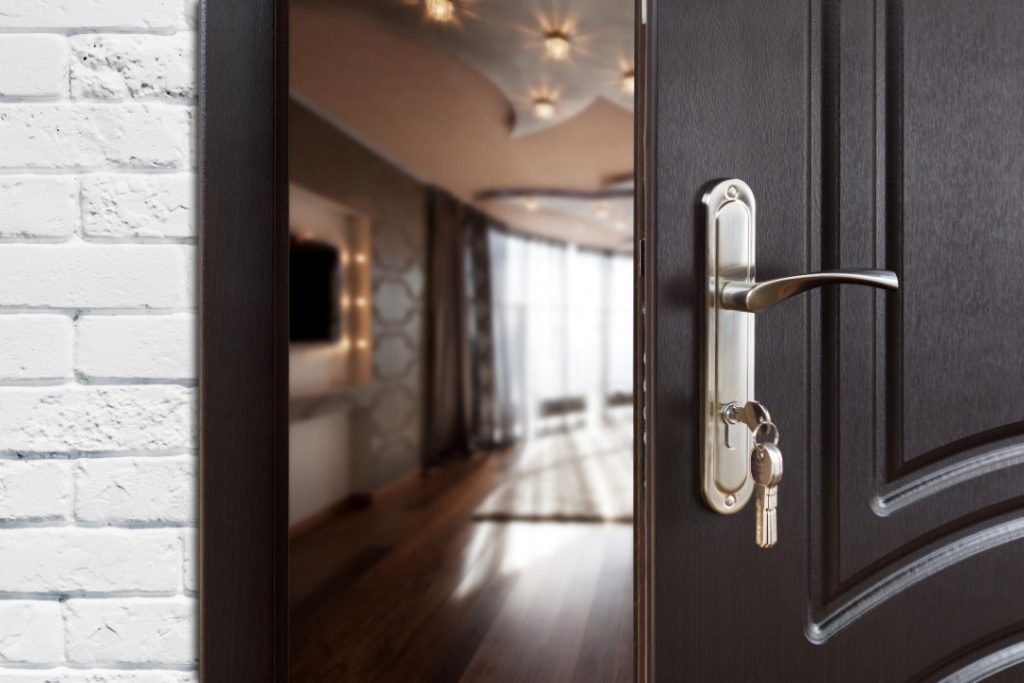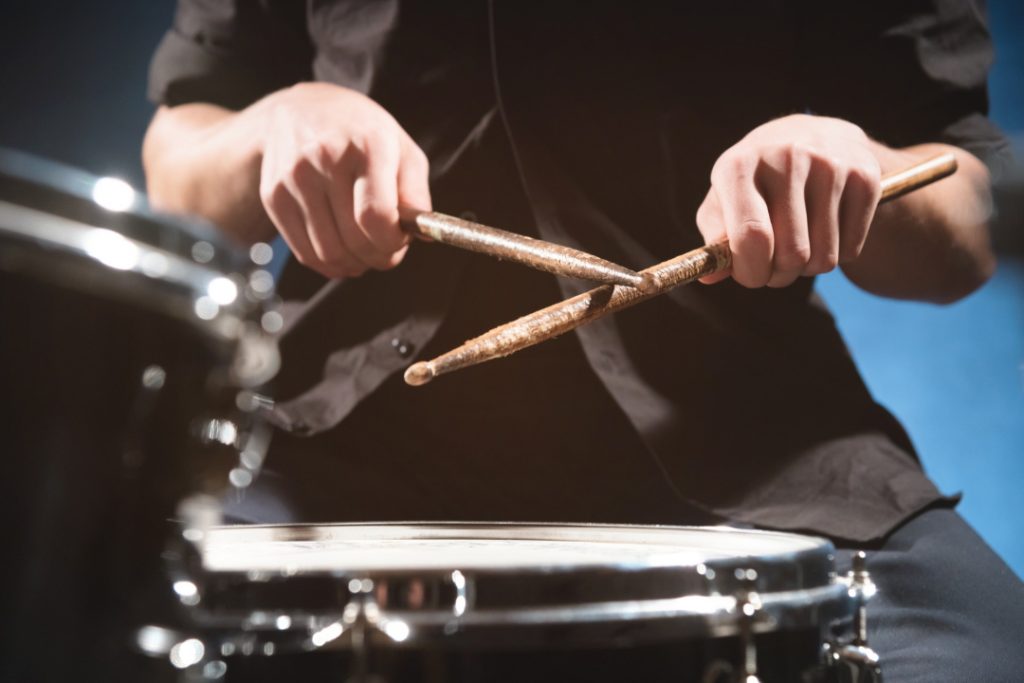How to soundproof stairs. You may have heard “soundproofing” before, but what exactly is it? Soundproofing is the process of reducing the amount of sound that travels through space. This can be done by using materials that absorb or deflect sound transmission waves or constructing barriers blocking sound from passing through.
Soundproofing can be used to improve the acoustics of a room, reduce sound transmission from outside sources, or make a space more private.
Identify The Areas Of Your Stairs That Make The Most Noise
Do your stairs creak and groan every time someone steps on them? While it may seem like a minor nuisance, this can signify a bigger problem. Stairs are designed to support a certain amount of weight; if they’re not properly maintained, they can start to sag and crumble. This makes them dangerous to use and can lead to costly repairs.
So, if your stairs are making too much noise, it’s important to identify the areas causing the problem. The most common culprit is loose boards or panels. These can create gaps that allow the soundproofing of both the stair treads to shift, which makes the stairs unstable and noisy.
Another common issue is loose handrails. If the handrails aren’t securely fastened to the stairway, they can create a rattling sound whenever someone grabs them. Lastly, worn-out carpeting can also make stairs noisy. Carpeting tends to compress over time, leaving gaps that allow the underlying boards to existing walls to move around.
If your stairs make too much-unwanted noise, take a close look at these areas and make any necessary repairs for your noise control. With a little TLC, you can keep your stairs quiet and safe for years.
Also read: How To Soundproof A Bathroom? (5 Easy Ways)
Areas Soundproof Can Be Used
One common area in which soundproofing is often used is stairs. Stairs are notoriously difficult to soundproof because they are typically made of hard materials like wood or concrete. However, there are a few ways to improve the soundproofing of stairs.
One option is to add carpet or other sound absorber soft materials to the surface of the stairs. This will help absorb some sound waves and reduce overall noise levels. Another option is to install soundproofing panels on the staircase walls next to the stairs.
These panels will block some of the noise from passing through and can significantly affect overall noise levels. If you are interested in improving the soundproofing of your stairs, there are a few things to keep in mind.
First, You may have heard the term “soundproofing” before, but what exactly is it? Soundproofing is the process of reducing the amount of sound that travels through space.
This can be done by using materials that absorb or deflect sound waves or constructing barriers blocking sound from passing through. Soundproofing can be used to improve the acoustics of a room, reduce noise pollution from outside sources, or make a space more private.
If you’ve ever run up and down stairs, you know that it creates a lot of noise. And if you live in an apartment building, this noise can annoy your neighbors. In this blog post, we’ll show you how to soundproof your stairs to reduce the amount of noise they make. We’ll also provide tips on keeping soundproofing materials in place. Let’s get started!
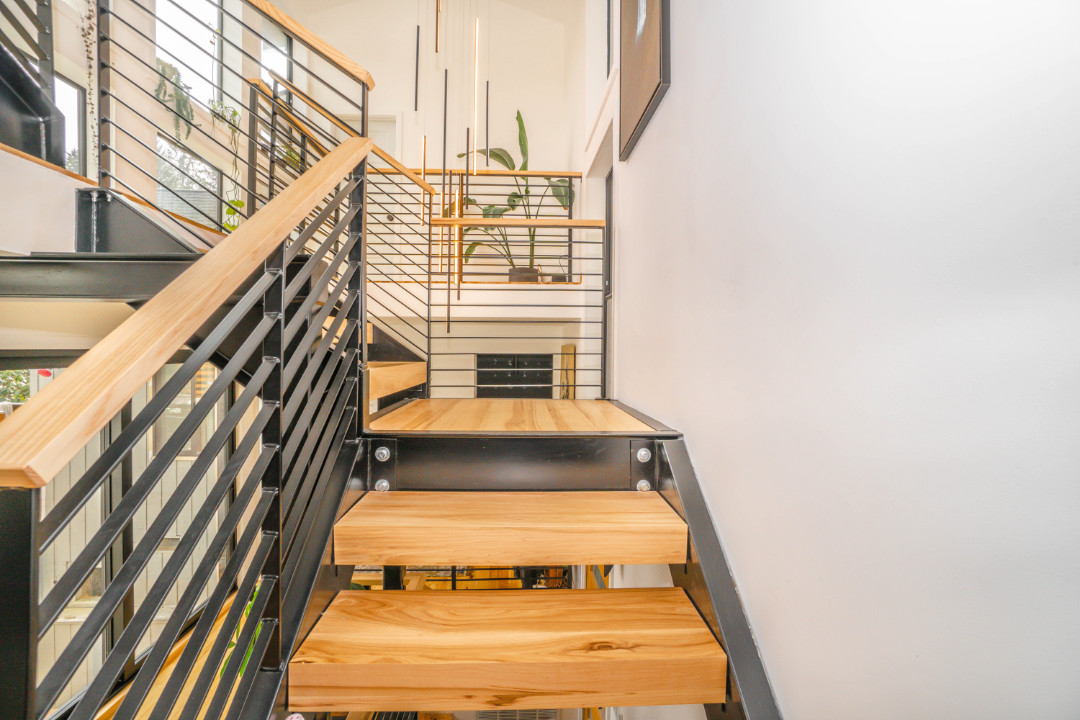
How To Reduce Noise Pollution
Anybody who has ever lived in an apartment or condo complex knows that noise pollution can be a serious problem. Whether it’s your upstairs neighbor’s late-night party wall or your neighbor’s dog that won’t stop barking, too much noise can quickly turn your peaceful home into a stressful environment.
Soundproofing your stair is a great way to reduce stairs noise pollution and create a more peaceful environment. There are a few different ways to soundproof your stairs, but one of the most effective is to use carpet pads. Carpet pads help absorb sound and prevent it from echo chamber off hard surfaces, and they can also help insulate your staircase against heat and cold.
Also read: How To Soundproof A Garage: A Guide
Create A More Peaceful Environment
Another effective way to soundproof your stairs is to use weather stripping around doorways and windows. Weather stripping helps block out drafts and prevent outside noise from entering your home. With a little effort, you can quickly make your home a more peaceful oasis away from the hustle and bustle of city living.
Also read: How To Soundproof A Floor (5 Ways)
Ways To Soundproof Stairs Using Sound-Dampening Materials
Believe it or not, stairs can be very noisy. Every time someone steps on them, they cry, echoing through the house. If you have hardwood floors, this noise can be amplified even further. Thankfully, there are a few different ways that you can soundproof your stairs so that you can enjoy some quiet. One option is to use acoustic foam.
This material is designed to absorb sound waves, so it can help to dampen the noise of footsteps. Another option is to carpet your stairs. This will help to muffle the noise of footsteps and make your stairs more comfortable to walk on.
Pairing in, you can also use sound-dampening materials such as rugs or mats. These can help reduce the amount of noise produced when someone walks on your stairs. By taking these simple steps, you can enjoy a quieter home environment.
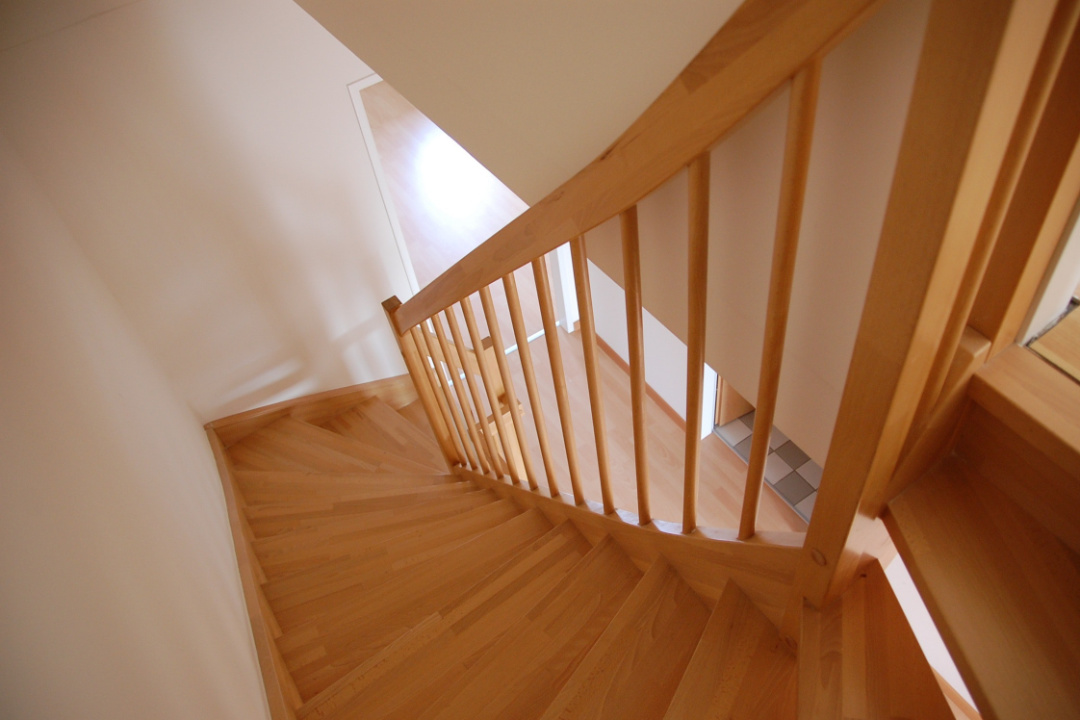
How Much Does It Cost To Soundproof Stairs?
The Cost of soundproofing stairs varies depending on the method you choose. If you’re looking for a more affordable option, you can use carpet padding or rugs to help absorb noise. You can also apply foam or rubber mats to your stairs’ underside to help block sound.
If you’re willing to invest a bit more, Cost is always a primary concern when taking on a home renovation project. Soundproofing stairs can be particularly tricky and expensive, as there are many nooks and crannies for sound to travel through.
The first step is to identify the areas where noise is most likely to escape. For example, if your stairs are open on one side, you’ll want to focus on sealing up any gaps along the edge of the treads. You may also need to add some insulation between the risers and treads.
Also read: How To Stop Refrigerator From Buzzing
Conclusion
Once you’ve pinpointed the problem areas, you can start shopping around for materials. Soundproofing foam or fiberglass panels are inexpensive and can be cut to fit any space. But if you’re looking for a more permanent solution, you may need to install new drywall or flooring.
The good news is that plenty of do-it-yourself kits are available to help you keep costs down. So whether you’re an experienced handyman or a complete novice, there’s no need to break the bank when soundproofing your stairs.

